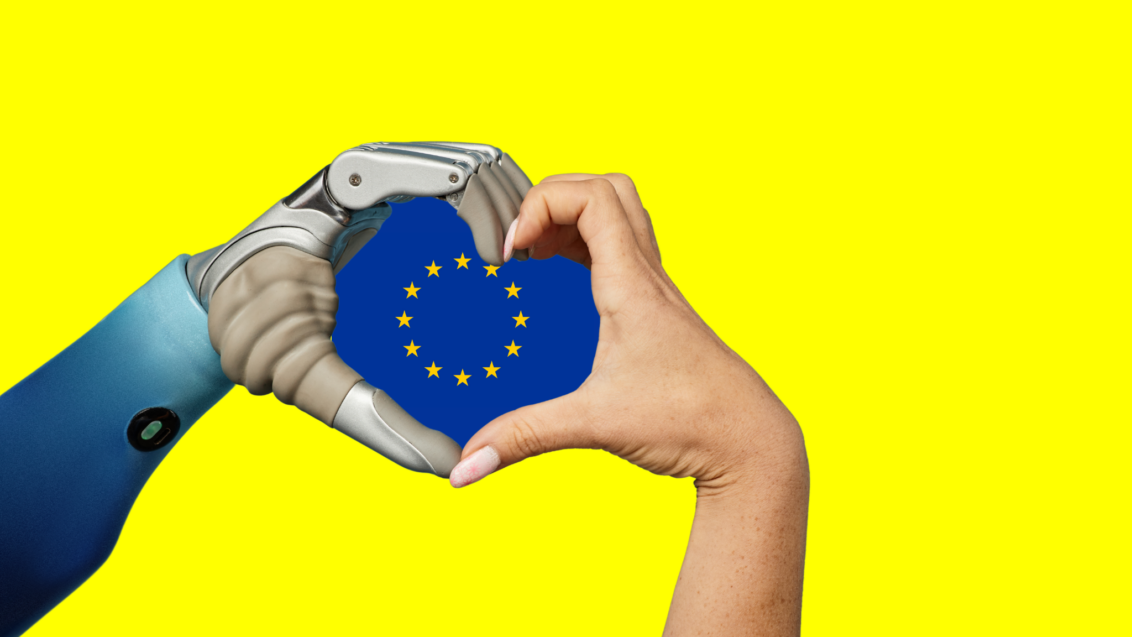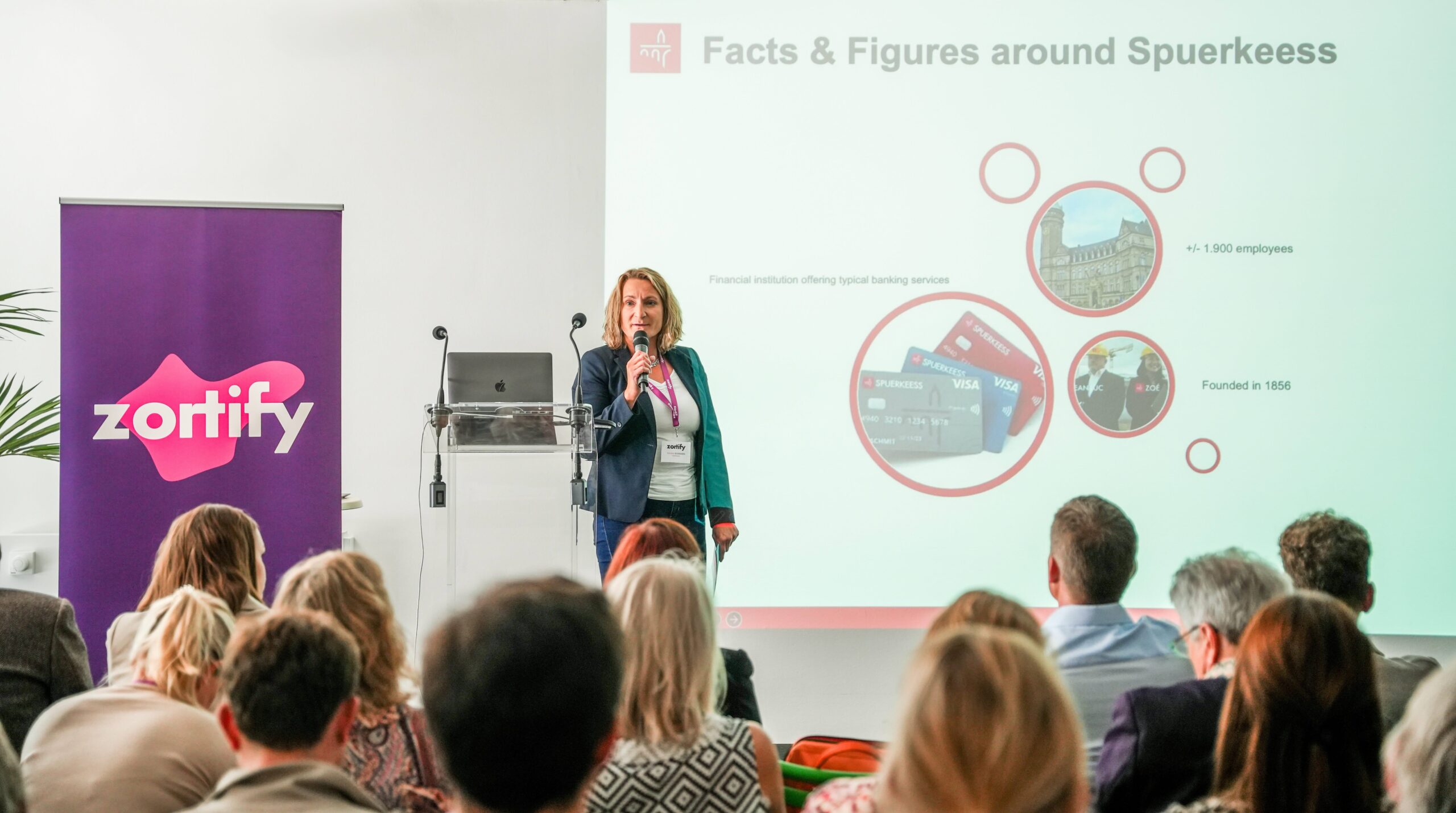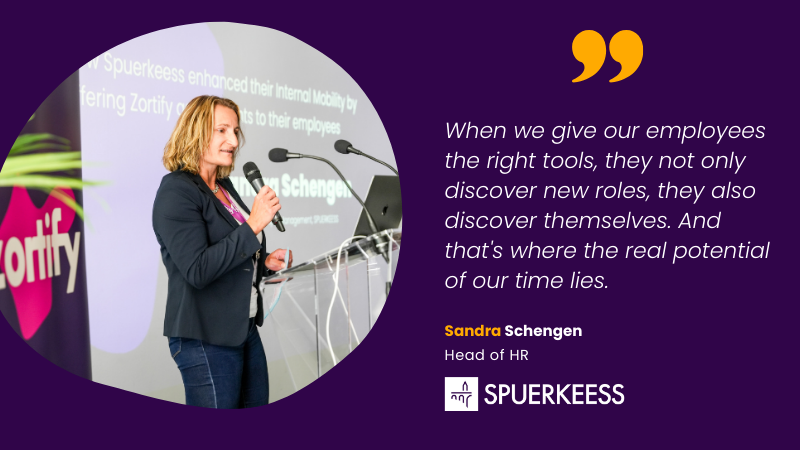EU AI Act

As the possibilities of AI grow, so do the requirements for the careful and responsible use of AI systems. The EU AI Act, which has been gradually coming into force since February of this year, places greater responsibility on companies. And makes AI expertise not just a competitive advantage, but a legal obligation.
Doubts about AI expertise in the HR sector
According to a recent Gartner study, CEOs have massive doubts about the AI skills of their management teams: although 77% of CEOs are convinced that artificial intelligence is fundamentally changing the economy, they lack confidence in the ability of their top managers to shape this change.
Most affected: HR management and HR teams. Less than one in ten CEOs trust their CHROs to have sufficient expertise to make informed HR decisions with AI. This means that the very department that has a direct influence on people and their career paths. And therefore on the long-term success of the company – is at risk of being left behind. Because one thing is also clear: AI is here to stay. Companies that know how to use it properly will achieve massive efficiency gains and thus competitive advantages.
Does HR need to be able to decrypt code?
No, of course not. HR work will remain human-centered in the future. The use of AI systems helps HR to focus even more on individual people and their further development within the organization. And on the development of their own strategic role in the company.
So why is AI expertise in HRM so crucial?
- Anyone who understands how AI algorithms work can better interpret their results, for example with regard to the evaluation of certain candidates, recognize possible biases and make informed decisions.
- The EU AI Act classifies AI systems as “high-risk systems” in many areas of HR work. This entails strict requirements for transparency, data quality, human oversight and IT security. Without any AI expertise, it is almost impossible to respond adequately to these requirements and avoid legal risks.
- One of the biggest risks when using AI in HR management are algorithms that reproduce existing biases in data. Ideally, AI expertise enables HR managers to recognize, evaluate and counteract discriminatory results. At the very least, it enables them to ask the right questions and hold their AI provider accountable (we’ll come to this in more detail in a moment).
- Employees and candidates must be able to trust that AI systems are used fairly and transparently. If HR has the relevant skills, this creates trust and acceptance.
- A deep understanding of AI makes HR teams the much-discussed drivers of change, for example by optimizing processes.
Checklist for HR: Is your AI provider EU-ready?
The proactive development of AI expertise is therefore not a luxury. But a necessity in order to remain fit for the future and ensure that the company remains competitive. And it is now also required by law. However, this does not mean that HR professionals have to become the new nerds. Yes, data analysis skills are undoubtedly becoming more important.
In the end, however, the key to AI competence does not lie in endless training courses and a deep understanding of technology, but in the selection of a reliable AI provider. One that knows exactly what the company’s requirements and questions are and at the same time complies with the regulations of the EU AI Act. One that not only provides a tool, but also acts as a trusted partner and takes companies by the hand, for example through:
- Workshops and coaching sessions in which HR teams learn how the AI tool works,
- Technical documentation & legal support in accordance with the EU AI Act,
- Support in interpreting the results provided by the AI.
With Zortify, we have developed a comprehensive checklist of questions that you can and should ask your AI providers to be on the safe side. You can download it here.
Ask the right questions!
A good AI provider takes a huge burden off HR’s shoulders by anticipating all organizational and legal requirements and providing appropriate solutions. HR therefore does not need to know all the answers in detail regarding the functional logic of AI systems, but it does need to know where to find them: namely with the AI provider.
In order to fully exploit the advantages of AI in the future, however, it is not only legal compliance that is required, but also an understanding of how AI significantly influences roles and processes in HR work. This is also AI competence. With this knowledge, you can make the leap from HR administration to the strategic, data-based HR work of the future.
The following questions can help you get there:
Strategy & risk assessment
- Have we determined the AI risk status of our HR applications?
- Has an internal AI strategy with responsibilities been established?
Qualification & training
- Does our HR team have basic AI knowledge?
- Is there a structured training program?
Data protection & compliance
- Is there a responsible person who coordinates our compliance efforts with regard to AI in HR (e.g. HR, legal department or data protection officer)?
Transparency & control
- Is human control and decision-making authority ensured?
- Are all those affected (employees, candidates) informed about the use of AI?
Choice of provider
- Do we work with AI providers who can guarantee scientifically sound and transparent development of their systems and understand our compliance requirements?
A complete checklist including the most important aspects of the EU AI Act, questions to reflect on your own AI readiness and questions that companies should ask their AI provider can be downloaded here.
And then it’s time to keep at it! Building AI expertise in HR is not a one-off task, but a continuous process. With the right knowledge and the right partners, companies can not only master the AI revolution in HR work, but actively shape it and thus find and retain the right talent.
Prof. Dr. Florian Feltes
Prof. Dr. Florian Feltes is co-founder and co-CEO of zortify and a forerunner in AI-supported HR innovation. Together with his team, he develops intelligent personality diagnostics and helps companies identify the perfect candidates—without expensive assessments and without bias. His vision: a world in which every company can effortlessly form high-performance teams and create work environments that allow human potential to flourish.


Putting people at the center with AI

“We don’t just invest in technology – we invest in our people.”
